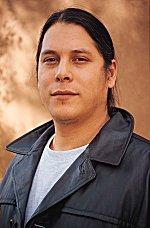D.C. Circuit Affirms Laches Ruling Dismissing "REDSKINS" Cancellation
On May 15, 2009, the U.S. Court of Appeals for the District of Columbia Circuit affirmed the ruling of the U.S. District Court for the District of Columbia that laches barred the attempt of Native American Mateo Romero to cancel six registrations for the mark REDSKINS (or variations thereof) owned by the Washington Redskins for football entertainment services. Pro-Football, Inc. v. Harjo, 90 USPQ2d 1593 (D.C. Cir. 2009).

This long-running battle began in 1992, when seven Native Americans filed a petition for cancellation with the TTAB, asserting that the REDSKINS marks are disparaging under Section 2(a) of the Trademark Act. The Board granted the petition in 1999 in Harjo v. Pro-Football, Inc., 50 USPQ2d 1705 (TTAB 1999), finding that the marks "may be disparaging of Native Americans to a substantial composite of this group of people,” and “may bring Native Americans into contempt or disrepute" in violation of Section 2(a). [In 1994, the Board had tossed out Pro-Football's laches defense in a pre-trial order.]
Harjo I: The U.S. District Court for the District of Columbia, in an appeal from the TTAB by way of civil action under Section 1071(b)(1) of the Trademark Act, granted summary judgment reversing the Board's decision. Pro-Football, Inc. v. Harjo, 68 USPQ2d 1225 (D.D.C. 2003). The district court ruled that the TTAB should have found the Native Americans' petition for cancellation barred by laches, and that in any case the TTAB's decision was unsupported by substantial evidence.
Harjo II: In a ruling issued on July 15, 2005, the U.S. Court of Appeals for the District of Columbia Circuit remanded the case to the district court for further consideration of the issue of laches with regard to one of the petitioners, Mateo Romero. Pro-Football, Inc. v. Harjo, 75 USPQ2d 1525 (Fed. Cir. 2005).
The court of appeals agreed with the Native Americans that the district court had improperly applied the doctrine of laches to Romero, who was only one-year old in 1967 when the district court started the clock for laches (when the first of the REDSKINS marks was registered).
The court explained that laches is an equitable doctrine "founded on the notion that equity aids the vigilant and not those who slumber on their rights." It ruled that, as to Romero, the district court's approach ran afoul of the "well-established principle of equity that laches runs only from the time a party has reached his majority." [The district court had improperly assessed laches as to all the Native Americans beginning in 1967, the time of the first mark’s registration.] While retaining jurisdiction of the case, the appellate court sent the case back to the district court to evaluate whether laches bars Romero's claim.
Harjo III: On remand, the district court was directed to evaluate "Romero's laches," and particularly the "trial and economic prejudice" to Pro-Football that would have been avoided "had the petitioner acted more diligently in seeking cancellation."
On June 25, 2008, the district court issued its decision on remand, concluding that Romero's claim was barred by laches. Pro-Football, Inc. v. Harjo, 87 USPQ2d 1891 (D.D.C. 2008). It found that Romero waited almost eight years after reaching the age of majority in 1984 before petitioning to cancel the six registrations, a delay that was "unusually long by any standard" and "unreasonable in light of the undisputed facts in this case. It further found that the "Romero delay period" resulted in "both trial prejudice and economic prejudice to Pro-Football, such that it would be inequitable to allow Defendant Romero to proceed with his cancellation petition." The district court therefore granted Pro-Football’s renewed summary judgment motion on its laches defense.
Harjo IV: In its latest ruling, the court of appeals confined its review to the sole question that Romero raised: whether the district court properly found trial and economic prejudice sufficient to support a defense of laches. The appellate court found no abuse of discretion in the district court's ruling, and so it affirmed.
The laches ruling applied even to the mark "Redskinettes," which was first registered in 1990, only two years before the petition for cancellation was filed. The district court found even this short period of delay unreasonable, "given the relationship between the Redskinettes claim and the other claims on which Romero was already delaying."

TTABlog note: Meanwhile, on August 11, 2006, six new Native American petitioners filed a petition for cancellation of the same six REDSKINS registrations. Blackhorse v. Pro Football, Inc., Cancellation No. 92046185. The petition alleges that "each of the Petitioners ... [has] only just recently reached the age of majority, the age from which the D.C. Circuit Court of Appeals has determined that laches begins to run."
Text Copyright John L. Welch 2009.

1 Comments:
It is true, Harjo has thrown a "Hail Mary" pass to the U.S. Supreme Court in overtime, by filing a petition for certiorari in Susan Harjo v. Pro-Football, Inc. Can anybody see the scoreboard clock?
http://www.linkedin.com/news?viewArticle=&articleID=68616540&gid=1880170&srchCat=RCNT&articleURL=http%3A%2F%2Fturtletalk%2Ewordpress%2Ecom%2F2009%2F09%2F15%2Fblt-harjo-v-redskins-case-reaches-supreme-court%2F&urlhash=JcF0
Post a Comment
<< Home